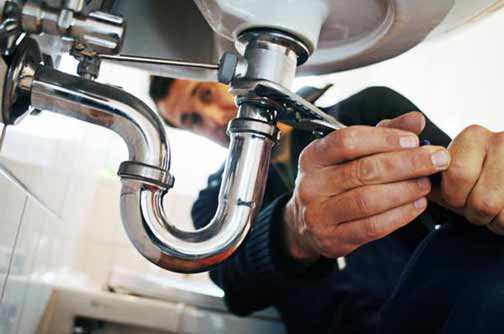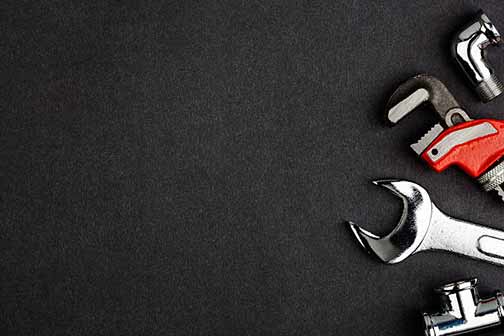
Stepping into your new home in Westmont, IL is an exciting experience filled with anticipation and joy. Among the various aspects of homeownership, understanding the plumbing system is crucial.
This guide is designed as an essential handbook for new homeowners in Westmont, offering a comprehensive overview of plumbing tips and maintenance strategies to ensure your home’s plumbing system remains in optimal condition.
Understanding the Basics of Your Home’s Plumbing System
Before diving into maintenance and tips, it’s important to understand the basic components of your home’s plumbing system. The plumbing system comprises a network of pipes, fixtures, and fittings that work together to deliver potable water and remove wastewater.
Key components include:
- Water Supply System: This includes pipes that bring freshwater into your home from a municipal source or a private well.
- Drainage System: A network of pipes that carries wastewater away from your sinks, toilets, and other fixtures to the sewer system.
- Fixtures and Appliances: Includes sinks, toilets, bathtubs, showers, dishwashers, washing machines, and water heaters.
Inspecting the Plumbing System of Your New Home
Upon moving into your new home, conducting a thorough inspection of your plumbing system can prevent future issues. Begin with a visual inspection, looking for any signs of leaks, corrosion, or water stains. Check all visible pipes, especially under sinks, around water heaters, and in the basement.
Key areas to inspect include:
- Water Meter and Main Shut-Off Valve: Know their location and ensure they are functioning properly. The main shut-off valve is crucial for stopping water flow in emergencies.
- Water Heater: Inspect for leaks, rust, or unusual noises. Check the temperature setting – it should be set to about 120 degrees Fahrenheit for optimal safety and efficiency.
- Fixtures and Faucets: Check for drips or leaks. Even minor leaks can result in significant water wastage and higher utility bills.
Essential Plumbing Tools for Homeowners
Having the right tools at your disposal can make a significant difference when addressing minor plumbing issues yourself. Some essential plumbing tools include:
- Plunger: Ideal for unclogging toilets, sinks, and drains.
- Pipe Wrench: Used for gripping and turning pipes.
- Adjustable Wrench: Useful for various plumbing tasks.
- Plumber’s Tape (Teflon Tape): Prevents leaks at threaded pipe joints.
- Plumber’s Snake (Drain Auger): Helps clear clogs deeper within pipes.
- Bucket and Towels: Essential for catching and cleaning up water spills.

Fundamental Plumbing Tips for New Homeowners
Adhering to some fundamental plumbing tips can greatly enhance the longevity and efficiency of your home’s plumbing system. Some vital tips include:
- Regular Maintenance: Regular inspections and maintenance can spot potential issues early. Consider scheduling annual inspections by a professional plumber for a thorough check-up.
- Avoid Chemical Drain Cleaners: These can damage your pipes over time. Opt for mechanical methods like plungers or plumber’s snakes in case of clogs.
- Mind What You Flush: Only flush human waste and toilet paper. Avoid flushing items like wipes, feminine hygiene products, and paper towels.
- Prevent Frozen Pipes: Insulate pipes in unheated areas and let cold and hot water trickle from faucets during extremely cold weather.
- Monitor Water Pressure: High water pressure can damage your plumbing. Check the pressure using a gauge and keep it between 40-60 psi.
Dealing with Common Plumbing Issues
Even with careful maintenance, you may encounter common plumbing issues. Here’s how to address some of them effectively:
- Leaking Faucets: Leaking faucets are often caused by worn out washers. Turn off the water supply, disassemble the faucet, replace the worn part, and reassemble.
- Clogged Drains: Remove clogs using a plunger or plumber’s snake. Avoid using chemicals to clear clogs, as they can harm your pipes.
- Running Toilets: Inspect the flapper and repair or replace it if damaged. Sometimes, adjusting the chain or float arm can resolve the issue.
When to Call a Professional Plumber
While handling minor issues yourself is feasible, certain situations necessitate professional intervention. Call a Westmont plumber if you encounter:
- Major Leaks: Significant leaks can cause extensive damage and should be addressed by a professional promptly.
- Persistent Clogs: Recurrent clogs may indicate deeper issues in your plumbing system that require professional assessment.
- Water Heater Issues: Problems with your water heater, like leaks or inconsistent heating, often need expert attention.
- Sewer Line Problems: If you notice signs of sewer line issues, such as multiple drain clogs or foul odors, plumber in Westmont, IL immediately.
Energy Efficiency and Water Conservation
Incorporating energy-efficient and water-conserving practices can benefit both the environment and your wallet. Consider the following suggestions:
- Install Low-Flow Fixtures: Low-flow showerheads and faucets reduce water usage without compromising performance.
- Fix Leaks Promptly: Addressing leaks immediately prevents water wastage and lowers utility bills.
- Use Energy-Efficient Appliances: When replacing appliances, opt for ENERGY STAR® rated models to reduce energy consumption.
- Insulate Pipes: Insulating hot water pipes minimizes heat loss and saves energy.
Preparing for Seasonal Changes
Seasonal changes can impact your plumbing system significantly. Preparing for these transitions can prevent potential damage:
Winter Preparation:
- Insulate exposed pipes to prevent freezing and burst pipe emergencies.
- Disconnect and drain outdoor hoses and shut off exterior faucets.
- Let faucets drip during freezing weather to avoid frozen pipes.
Spring Preparation:
- Inspect for leaks and damage caused by winter freezing.
- Clear gutters and downspouts to ensure proper drainage.
- Check the sump pump to ensure it is functioning correctly.
To Wrap it Up
Owning a home in Westmont is a rewarding experience, and understanding your plumbing system is a vital part of it. By following the tips and strategies outlined in this guide, you can maintain your home’s plumbing system efficiently, preventing potential issues and ensuring the comfort and safety of your household.
Remember, while some maintenance and repairs can be handled independently, don’t hesitate to seek professional assistance when necessary. Your proactive approach to plumbing maintenance will go a long way in preserving the integrity and value of your new Westmont home.
—
Need assistance with your plumbing in the Westmont, IL area? We can help! Contact us now at 708-801-6530 or by form below:
[gravityform id=”1″]

